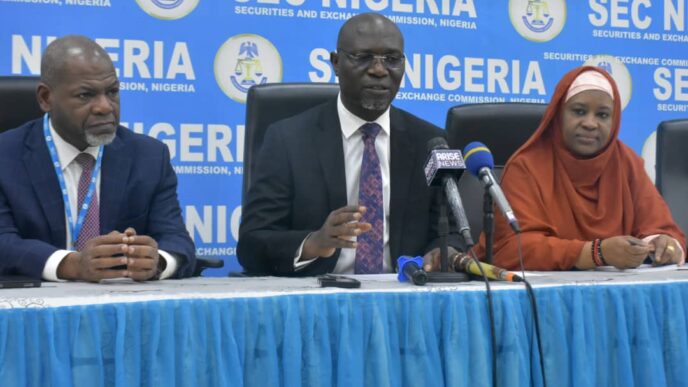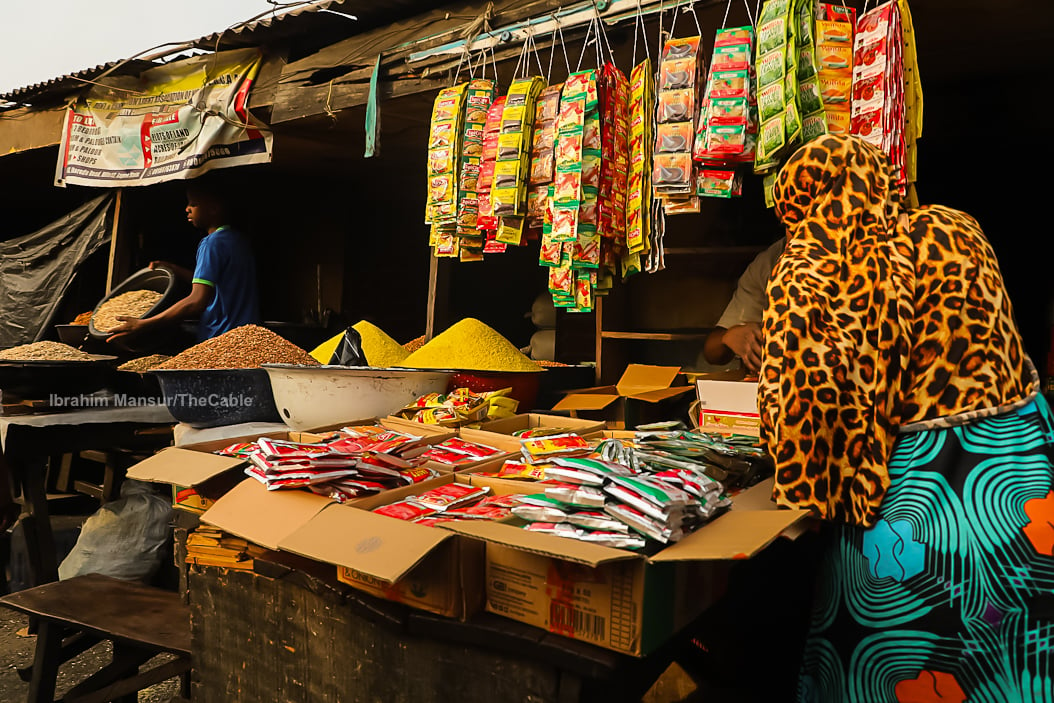Tajudeen Abbas, speaker of house of representatives, sponsored the counter subversion bill
On August 14, Tajudeen Abbas, speaker of the house of representatives, came under criticism over a bill he sponsored seeking to punish citizens who refuse to recite the national anthem and pledge.
Abbas introduced the proposed legislation, the ‘counter subversion bill’, on the floor of the green chamber in July.
However, the speaker withdrew the bill on Wednesday following a public outrage.
Musa Krishi, spokesperson to the speaker, said his principal decided to withdraw the bill after “careful consideration”.
Advertisement
“In response to the voices and concerns of the people, the Speaker of the House of Representatives, Rt. Hon. Abbas Tajudeen, Ph.D., has decided to withdraw the Counter Subversion Bill and other related draft legislation,” Krishi said.
“This decision follows his extensive consultations with a broad range of stakeholders and a careful consideration of the nation’s current circumstances.
The bill was seeking to “criminalise subversive activities”.
Advertisement
The pushback that greeted the introduction of the bill followed one of its clauses that says that anyone who refuses to recite the national anthem could be imprisoned for 10 years or fined N5 million, or face both.
Those who kicked against the bill argued that the Bola Tinubu administration recently reverted to the old anthem, which they argued is “colonial” and not a priority at the moment.
On May 29, Tinubu signed the bill on the reintroduction of the old “Nigeria We Hail Thee” national anthem. The move was received with reservations.
The country has seen an increase in inflation after the removal of petrol subsidies and the floating of the currency.
Advertisement
TheCable brings the highlights of the bill, which has 24 clauses.
Clause 2 provides that “a person who engages in activities that result in mutual suspicion, mistrust, distrust, or intolerance that degenerates into conflict and violence that threatens the corporate existence, peace, and security of the Federation of Nigeria, commits an offence and is liable on conviction to a fine of N5,000,000 or imprisonment for a term of 10 years or both.
Clause 3 prescribes that “a person who engages in illegal road traffic function, illegal roadblock, imposition of illegal curfew, conduct of illegal procession, checkpoint, and other similar acts, commits an offence and is liable on conviction to a fine of N2,000,000 or imprisonment for a term of five years or both”.
Clause 5 of the bill states that “a person who forcefully takes over any place of worship, town hall, school, premises, public or private place, arena, or a similar place through duress, undue influence, subterfuge, or other similar activities, commits an offence and is liable on conviction to a fine of N5,000,000 or imprisonment for a term of 10 years or both”.
Advertisement
Clause 6 says that “a person who professes loyalty, pledges, or agrees to belong to an organisation that disregards the sovereignty of Nigeria, commits an offence and is liable on conviction to a fine of N3,000,000 or imprisonment for a term of four years or both”.
Clause 7 seeking to punish “dangerous statements” provides that “a person who makes a statement, does something, or directs or encourages another person or group to do something that will lead to separatist agitation or intergroup or sectional conflict, commits an offence and is liable on conviction to a fine of N10,000,000 or imprisonment for a term of 25 years or both”.
Advertisement
Clause 8 states that “a person who destroys national symbols, refuses to recite the national anthem and pledge, defaces or abuses a place of worship with the intention to cause violence and subvert the Government of Nigeria, commits an offence and is liable on conviction to a fine of N5,000,000 or imprisonment for a term of 10 years or both.
Clause 10 provides that “a person who receives financial or political support from a foreign organisation, group, or country that is not compatible with the interest, development, security, and progress of Nigeria, commits an offence and is liable on conviction to a fine of N15,000,000 or imprisonment for a term of 20 years or both”.
Advertisement
Clause 13 of the bill prescribes three years jail time for persons or organisations who “persistently disregards, disobeys, or disrespects constituted authority” for a first-time offender, and seven years imprisonment and or N5 million fine for a subsequent offence.
Also, a jail time of four years and or N4 million fine is prescribed for anyone who embarrasses or brings into
disrepute political, religious and community leaders.
Advertisement
Clause 15 of the bill prescribes that “a person who establishes, creates, operates, or maintains funds, supports, or assists a paramilitary, guard, brigade, organisation, corps, union, militia, cult, or bandit group under whatever name or guise, except established by-laws passed by the National Assembly or State House of Assembly, commits an offence and is liable on conviction to a fine of N10,000,000 or imprisonment for a term of 15 years or both”.
Clause 17 also seeks to criminalise illegal construction or takeover of structures on public roads or fields, with a fine of N1 million and or 3 years imprisonment.
Clause 18 of the bill states that “a person who castigates, instigates, persuades, denigrates, embarrasses, or brings into disrepute the leadership of a community, religion, lawful group, local government, state, or federal government of Nigeria commits an offence and is liable on conviction to a fine of N4,000,000 or imprisonment for a term of two years or both”.
Clause 20 provides that “a person who owns, possesses, produces, distributes, imports, handles, and uses established security, military, police, or intelligence agency uniforms, emblems, or accoutrements, commits an offence and is liable on conviction to a fine of N2,000,000 or imprisonment for a term of two years or both”.
Other countries with anti-subversion or similar laws include Hong Kong, Indonesia, and the Philippines.
In March, China’s legislature passed a new national security law for Hong Kong. The law criminalises any act that could be deemed a threat to national security.
The law was created in response to the 2019 protests in Hong Kong. A similar law was also passed in 2020 after the protests.
Under the new law, “secession, subversion, terrorism, and collusion with foreign forces” attract maximum penalties of life imprisonment.
Reporting by
Add a comment










